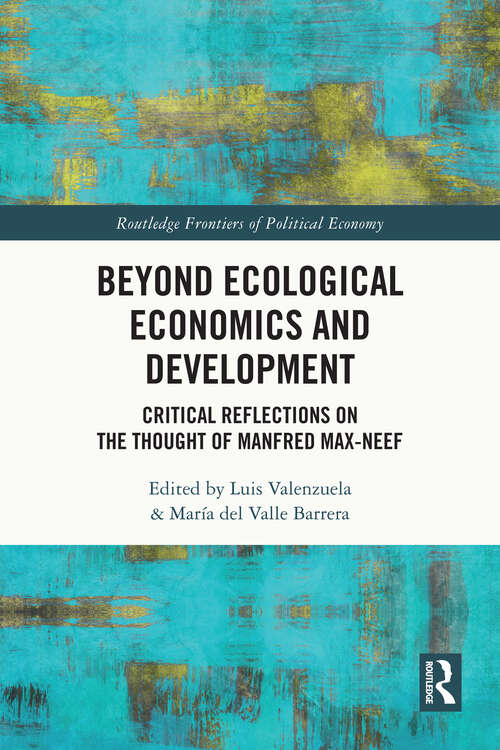Beyond Ecological Economics and Development: Critical Reflections on the Thought of Manfred Max-Neef (Routledge Frontiers of Political Economy)
By: and
Sign Up Now!
Already a Member? Log In
You must be logged into Bookshare to access this title.
Learn about membership options,
or view our freely available titles.
- Synopsis
- The interrelationship among development, environment, and human needs is one of the key issues being faced by the world today. The Chilean economist, Manfred Max-Neef, was a leading thinker on this dynamic, and this book provides both an introduction to and analysis of his work and ideas. Arranged in three main sections – “Human needs and wellbeing”, “Development, growth and sustainability”, and “Methodology of economics” – the chapters in this book contribute to on-going debates on issues as important as human development, the limits of economic growth, deep ecology, sustainable consumption, entrepreneurship, climate change, interdisciplinarity, and the methodology and practice of economics. The contributors to this volume provide a broad range of different critical perspectives on these issues, and the chapters are arranged in dialogue with each other to provide the reader with a rounded view of the legacy of Max-Neef. This book is vital reading for all those interested in ecological economics, environmental economics, development economics, methodology and philosophy of economics, and heterodox economics.
- Copyright:
- 2024
Book Details
- Book Quality:
- Publisher Quality
- Book Size:
- 264 Pages
- ISBN-13:
- 9781000934441
- Related ISBNs:
- 9781032463261, 9781032463230, 9781003381143
- Publisher:
- Taylor and Francis
- Date of Addition:
- 08/25/23
- Copyrighted By:
- selection and editorial matter, Luis Valenzuela and María del Valle Barrera
- Adult content:
- No
- Language:
- English
- Has Image Descriptions:
- No
- Categories:
- Nonfiction, Business and Finance
- Submitted By:
- Bookshare Staff
- Usage Restrictions:
- This is a copyrighted book.
- Edited by:
- Luis Valenzuela
- Edited by:
- María del Valle Barrera
